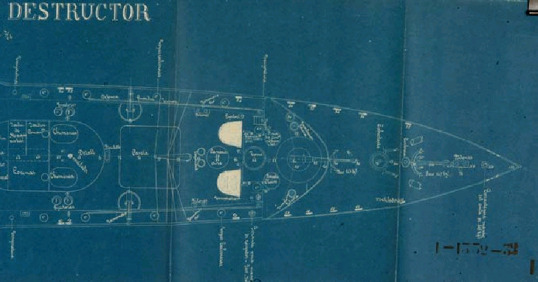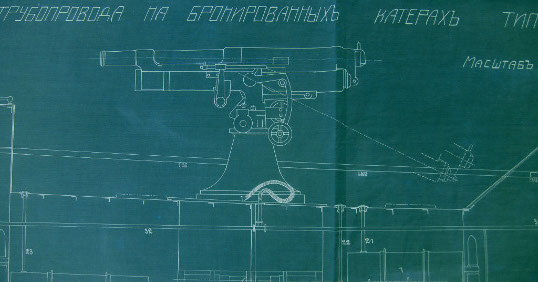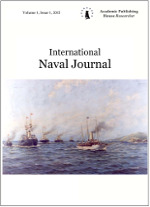1 March 11, 2016
Articles and Statements
1. Emir Yener
Ottoman Seapower and Naval Technology during Catherine II’s Turkish Wars 1768-1792
International Naval Journal, 2016, Vol.(9), Is. 1, pp. 4-15.
Number of views: 2805 Download in PDF
2. Yuri F. KatorinInternational Naval Journal, 2016, Vol.(9), Is. 1, pp. 4-15.
Abstract:
Empress Catherine II of Russia’s reign is largely shaped by the two Russo-Turkish wars (1768-74 and 1787-91). This conflict did result with a most radical alteration of the balance of pow-er in Eastern Europe and both the Romanov and Ottoman navies did play a decisive role in the out-come of these two wars. However, in stark contrast with the well researched Russian naval power, the knowledge about the Ottoman navy in this crucial era is still largely limited to the 18th century assumptions and judgements. This short article is an attempt to redress this situation by compar-ing the strength, construction, arming and manning of the Ottoman sailing navy with its Russian counterpart in light of the latest research from the Turkish, Western European and Russian ar-chives.
Empress Catherine II of Russia’s reign is largely shaped by the two Russo-Turkish wars (1768-74 and 1787-91). This conflict did result with a most radical alteration of the balance of pow-er in Eastern Europe and both the Romanov and Ottoman navies did play a decisive role in the out-come of these two wars. However, in stark contrast with the well researched Russian naval power, the knowledge about the Ottoman navy in this crucial era is still largely limited to the 18th century assumptions and judgements. This short article is an attempt to redress this situation by compar-ing the strength, construction, arming and manning of the Ottoman sailing navy with its Russian counterpart in light of the latest research from the Turkish, Western European and Russian ar-chives.
Number of views: 2805 Download in PDF
Been Killed Not in Combat
International Naval Journal, 2016, Vol.(9), Is. 1, pp. 16-24.
Number of views: 2650 Download in PDF
3. Zvonimir FreivogelInternational Naval Journal, 2016, Vol.(9), Is. 1, pp. 16-24.
Abstract:
In the article it is told about two cases of the loss of sail battleships because of the filling by their water through the cannon ports. It is proven that the invention of gun port was powerful stimulus for an increase in the firepower of ship, determined at that time by the number of instru-ments, but for the power it was necessary to pay by safety.
In the article it is told about two cases of the loss of sail battleships because of the filling by their water through the cannon ports. It is proven that the invention of gun port was powerful stimulus for an increase in the firepower of ship, determined at that time by the number of instru-ments, but for the power it was necessary to pay by safety.
Number of views: 2650 Download in PDF
Coast Defence Ships of the «Monarch» Class
International Naval Journal, 2016, Vol.(9), Is. 1, pp. 25-34.
Number of views: 2801 Download in PDF
4. Alexander V. DashyanInternational Naval Journal, 2016, Vol.(9), Is. 1, pp. 25-34.
Abstract:
The ironclads of the «Monarch» class, albeit small and known mostly as «coast defenders» were first modern battleships of the Austro-Hungarian Imperial and Royal Navy (Kaiserliche und Königliche Kriegsmarine / K.u.k. Marine). They were planed and built shortly before the turn of the XIX to XX century, and were the oldest of the several Austro-Hungarian battleship classes that par-ticipated in World War One (there were some older units in service, but these were mostly used as guard, headquarters or barracks ships). Because of their old age, they served during the early war stages as an detached coast defence squadron, responsible for the defence of the Bocche di Cattaro and support of the land forces against Montenegro, and were not part of the Battle Fleet any more. Later two vesels were sent to the Northern Adriatic, supporting Army units with their artillery on the front against Italy, and one of these ships was lost there, during a stay on the supposedly secure anchorage. After the war, the remaining pair followed their younger «consorts», being delivered to the victors and scrapped afterwards.
The ironclads of the «Monarch» class, albeit small and known mostly as «coast defenders» were first modern battleships of the Austro-Hungarian Imperial and Royal Navy (Kaiserliche und Königliche Kriegsmarine / K.u.k. Marine). They were planed and built shortly before the turn of the XIX to XX century, and were the oldest of the several Austro-Hungarian battleship classes that par-ticipated in World War One (there were some older units in service, but these were mostly used as guard, headquarters or barracks ships). Because of their old age, they served during the early war stages as an detached coast defence squadron, responsible for the defence of the Bocche di Cattaro and support of the land forces against Montenegro, and were not part of the Battle Fleet any more. Later two vesels were sent to the Northern Adriatic, supporting Army units with their artillery on the front against Italy, and one of these ships was lost there, during a stay on the supposedly secure anchorage. After the war, the remaining pair followed their younger «consorts», being delivered to the victors and scrapped afterwards.
Number of views: 2801 Download in PDF
The First 20-kn Steamer for South Africa
International Naval Journal, 2016, Vol.(9), Is. 1, pp. 35-43.
Number of views: 2128 Download in PDF
5. Alexander F. MitrofanovInternational Naval Journal, 2016, Vol.(9), Is. 1, pp. 35-43.
Abstract:
The paper gives a biography of the steamer «Scot» of the shipping company «Union», built for delivery to South Africa gold miners. In 1905 it sold a German shipping company, and later the American and he finished his career under the Spanish flag.
The paper gives a biography of the steamer «Scot» of the shipping company «Union», built for delivery to South Africa gold miners. In 1905 it sold a German shipping company, and later the American and he finished his career under the Spanish flag.
Number of views: 2128 Download in PDF
«Almirante Grau» – Long-Lived Cruiser
International Naval Journal, 2016, Vol.(9), Is. 1, pp. 44-54.
Number of views: 2158 Download in PDF
6. International Naval Journal, 2016, Vol.(9), Is. 1, pp. 44-54.
Abstract:
«Almirante Grau», former Dutch cruiser «De Ruyter» has long been the flagship of the Peru-vian Navy. Currently it is the world's oldest operating cruiser and the world's only ship with a pow-erful artillery weapons. We consider the history of the ship and its major modernization.
«Almirante Grau», former Dutch cruiser «De Ruyter» has long been the flagship of the Peru-vian Navy. Currently it is the world's oldest operating cruiser and the world's only ship with a pow-erful artillery weapons. We consider the history of the ship and its major modernization.
Number of views: 2158 Download in PDF

















